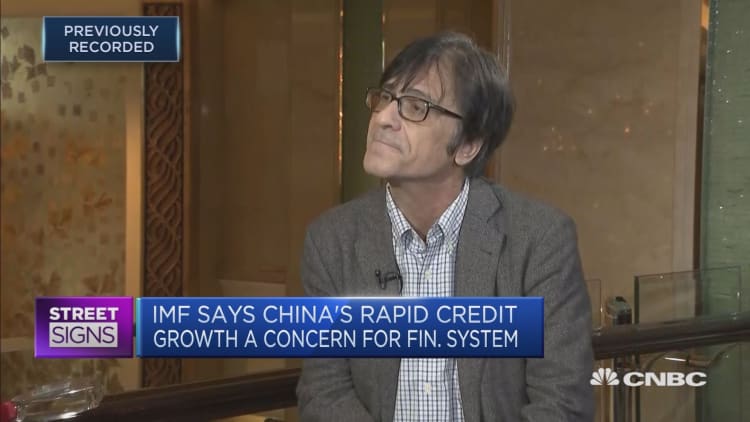
China's growth rate will be "much, much lower" when Beijing gets a grip on controlling debt, a finance professor at one of China's top university said Thursday.
"I have absolutely no doubt that once Beijing is able get control of the growth in credit — which they are a long way from doing — growth rates are going to be much, much lower than the current growth rate," said Michael Pettis, finance professor at Peking University.
In that scenario, equilibrium growth rates will be 2 to 3 percent, Pettis told CNBC on the sidelines of the Fortune Global Forum in Guangzhou, China. The country targeted growth around 6.5 percent this year.
So far, the Chinese government has achieved little success in reining in debt growth in the last five to six years, as the country has a GDP growth target that requires more growth than the economy can generate organically. "So, the only way to get there is with debt and with accelerating amounts of debt," said Pettis, who was a former managing director at Bear Stearns.
Reducing debt, while challenging, is unlikely to spur a financial crisis in China as the banking system is still closed and very controlled, he added.
And although there are fears that a slowdown in Chinese growth will drag the world economy down, Pettis said it would not be as drastic as most imagine.
"China is the biggest arithmetical component to global growth, but it's not really the biggest contributor to global growth. What the world needs is demand, that's the most scarce resource," said Pettis.
However, China's deleveraging will take a considerable amount of time to achieve.
"Deleveraging just means assigning the cost of debt to some sector of the economy, so the question is: Which is the sector that can absorb the cost with the least damage to the economy? And the answer is very clear and very straightforward: It's the local governments and the local elites," Pettis said.
As those entities grew faster than GDP in the three decades of breakneck growth in China, they will have to pay the cost of the debt now. Targeting them, however, is tough.
"There are the so-called vested interests. They are politically quite powerful so the process of forcing them to absorb the cost of the debt has been very difficult," said Pettis.

